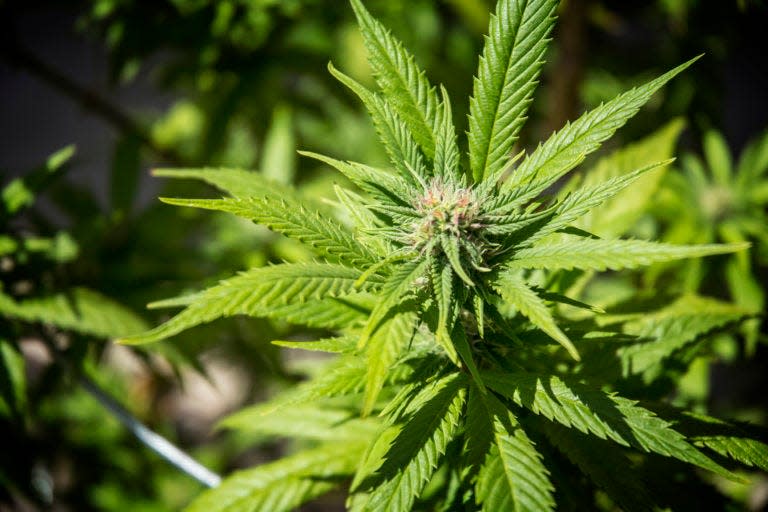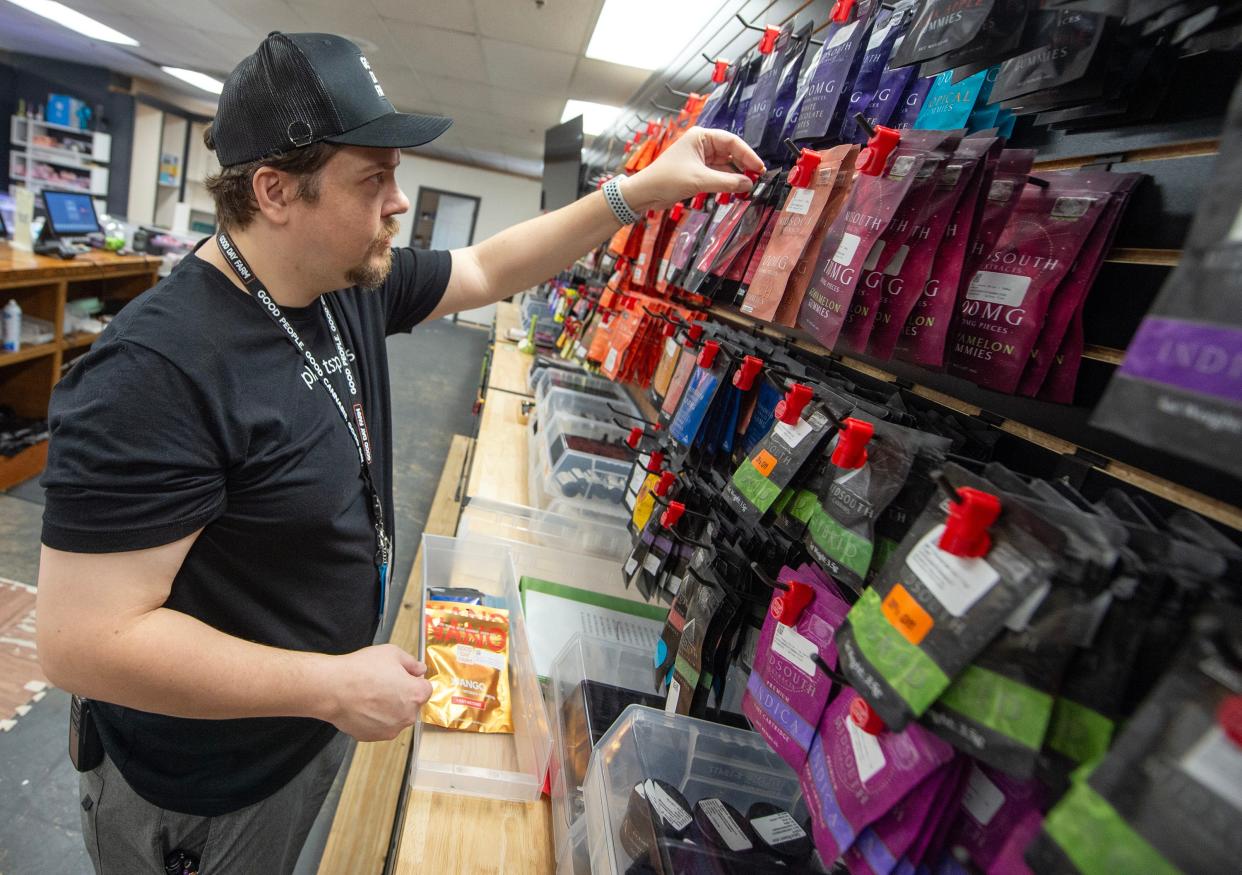Experts: Marijuana legalization in Tennessee 'just a matter of time' after federal change

Marijuana, long restricted as one of the most dangerous drugs in America, is up for reclassification by federal regulators as a medically useful narcotic.
What does that mean in Tennessee — one of the last U.S. states likely to approve a path to legalization?
That depends on what happens at the federal level and how local legislators respond. Nationwide, there is growing bipartisan consensus in favor of more lenient marijuana laws.
Cannabis advocates in Tennessee think the move by the federal government will make marijuana more mainstream.
"It goes to further reduce the stigma related to the plant," said Frederick Cawthon, president of the Hemp Alliance of Tennessee which promotes cannabis both for its fiber and its potential medical uses.
Cawthon believes the federal reclassification will spur more research into the pharmaceutical uses of the plant.
What happened?
On Tuesday, Attorney General Merrick Garland reportedly submitted a proposal to remove pot from the list of "Schedule I" drugs along with heroin and LSD. These drugs are considered unsafe, highly addictive and of no medical value.
Cannabis was outlawed in the 1970 Controlled Substances Act for being dangerously addictive and having no medical value. A half century later, most Americans have a different view of marijuana, now a multi-billion dollar industry. According to the latest Gallup poll, 70% of Americans support legalizing marijuana.
Forty-one states have approved medical, recreational or both kinds of marijuana use and sale, and Wisconsin is expected to join the list this year while others like Florida are considering expanding to allow recreational marijuana.
The proposal would reclassify marijuana as a less dangerous, and less restricted, "Schedule III" drug with ketamine, anabolic steroids and acetaminophen-codeine.
The change wouldn't automatically make pot legal in all 50 states, but it would open the door to more easily selling and buying cannabis.
How will it affect Tennessee, where marijuana remains illegal?
What exactly did the federal government do?
Nothing yet.
But the Drug Enforcement Administration, according to a leak first reported by the Associated Press, plans to reclassify marijuana as a Schedule III drug — considered to be less addictive and having medical uses.
The Department of Health and Human Services, at the request of President Joe Biden, reviewed the status of marijuana and recommended that the DEA classify it as less restrictive.
After a period for public comments, the DEA will likely reclassify marijuana as a Schedule III drug.
Does this mean medical marijuana would be legal nationwide?
No.
The Food and Drug Administration would have to approve marijuana for medical use. In the past, to reclassify a drug the HHS has required randomized, controlled trials, the same kind of studies the FDA would use to approve drugs for medical use. This time, the agency recommended reclassifying marijuana without those studies, which are difficult to conduct on highly restricted, Schedule I drugs.

In Tennessee, both medical and recreational uses of marijuana will remain illegal and the Food, Drug and Cosmetic Act will still prohibit selling marijuana across state lines.
"If it's going to do anything, it would just give a little bit of political momentum to advocates of legalization," said Robert Mikos, a Vanderbilt University law professor and an expert on drug laws.
How will reclassification affect states where pot is legal?
Very little. Marijuana producers, because their business is illegal under federal law, cannot use banks, apply for trademarks, file for bankruptcy if business goes bad or take someone to court for breaking a contract. None of that will likely change after marijuana is reclassified. Although a producer could register with the DEA, they would only be allowed to sell marijuana for medical purposes and could only do business with other DEA licensed businesses. It is unlikely many producers would accept those restrictions.
Marijuana producers will pay lower taxes, since sellers of illegal Schedule I and II drugs get hit with a higher tax bill -- if they pay taxes.
"It's ultimately going to amount to no more than a tax cut for marijuana dealers, including those who are operating illegally," Mikos said.
What would it take to legalize marijuana in Tennessee?
Many states in the South have legalized marijuana, at least for medicinal uses. Those states, Mikos said, allow ballot initiatives that let voters enact legalization even if socially conservative lawmakers oppose it.
"Tennessee doesn't have that to any meaningful extent," Mikos said.
The overwhelming public support for legalizing marijuana, at least for medical uses, does make this a rare issue that cuts across political divisions.
"I think it's just a matter of time before it becomes legalized for medical purposes, even in states like Tennessee," Mikos said.
Todd A. Price is a regionalreporter in the South for the USA TODAY Network. He can be reached at taprice@gannett.com.
This article originally appeared on Nashville Tennessean: Marijuana legalization in TN 'just a matter of time' if reclassified
